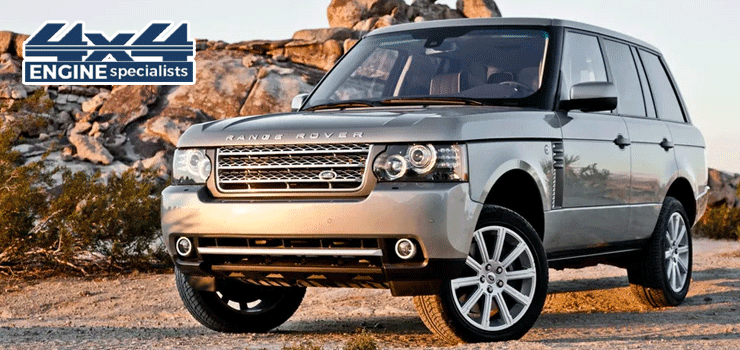The Range Rover is a symbol of luxury, performance, and off-road capability, and at the heart of this vehicle lies its powerful engine. Among its many variants, the Range Rover Engine 3.0, particularly the Ingenium 3.0L inline-6, has gained attention for its smooth power delivery and advanced engineering. However, like any automotive component, even a high-end engine has a lifespan that depends on various factors such as maintenance, driving habits, environmental conditions, and usage patterns.
For owners, mechanics, and buyers alike, understanding the expected lifespan of a well-maintained 3.0 Range Rover engine is critical. It informs purchasing decisions, servicing schedules, and potential investments in reconditioned engines if needed. In this detailed article, we’ll explore everything from the typical mileage you can expect from a Range Rover engine to how reconditioning can extend its operational life. We’ll also cover warning signs of engine wear and when to consider an engine replacement. Let’s dive into what makes the 3.0 Range Rover engine a reliable powerhouse—and how to ensure it lives up to its full potential.
The Engineering Behind the Range Rover Engine 3.0: Why It Matters
The Range Rover 3.0 engine, especially the Ingenium series, is a sophisticated blend of performance and efficiency. It typically comes in turbocharged or mild hybrid variants and is known for producing between 355 to 400 horsepower. The engine architecture uses lightweight aluminum blocks, integrated exhaust manifolds, and variable valve timing to enhance performance while reducing fuel consumption and emissions.
What sets the 3.0 Range Rover engine apart is its balance between luxury ride comfort and raw power for off-roading. This engine features advanced cooling systems, intelligent oil circulation, and electronically controlled turbochargers. These elements contribute to a more refined driving experience and help manage engine stress under various conditions.
A well-maintained Range Rover engine 3.0 is capable of delivering excellent performance for many years. However, its longevity depends heavily on adhering to service intervals, using high-quality parts, and monitoring the engine’s health. Understanding its engineering complexity highlights why proper care and periodic evaluations are crucial for a longer lifespan.
Average Lifespan of a Well-Maintained 3.0 Range Rover Engine
Typically, a well-maintained Range Rover engine 3.0 can last between 200,000 to 250,000 miles. This is assuming regular oil changes, timely replacement of air and fuel filters, and the use of premium-grade fluids. The engine’s robust build and engineering precision give it the potential to exceed even 300,000 miles in some cases.
However, achieving this mileage is highly dependent on driving behavior and maintenance. Vehicles that endure frequent short trips, heavy towing, or off-road conditions may see reduced longevity if not properly serviced. On the other hand, highway-driven Range Rovers that follow a strict maintenance routine often last much longer.
It’s also important to remember that components like the timing chain, turbocharger, and cooling system need special attention. If these are neglected, the engine’s lifespan could be cut short. Many vehicle owners extend their engine’s life by proactively replacing worn-out parts, opting for reconditioned engines when necessary, and avoiding aggressive driving habits.
Maintenance Practices That Maximize Engine Lifespan
Proper maintenance is the cornerstone of extending the life of any engine, including the Range Rover engine 3.0. One of the most critical aspects is regular oil changes—typically every 7,500 to 10,000 miles using fully synthetic oil recommended by the manufacturer. Clean oil reduces friction, removes heat, and prevents sludge buildup.
In addition to oil changes, routine checks on the cooling system are essential. Overheating is a major cause of engine damage, so ensuring coolant levels and radiator health can prevent costly repairs. Regular air filter and fuel filter replacements also ensure optimal combustion and protect internal engine components from debris.
Other important maintenance tasks include timing chain inspections, spark plug replacements, and software updates for the engine control unit (ECU). Some owners also benefit from diagnostic scans at service intervals, which can detect issues before they evolve into serious problems. By sticking to a disciplined service schedule and addressing problems early, you can dramatically extend the operational life of your 3.0 Range Rover engine.
The Role of Driving Habits in Engine Longevity
While maintenance is essential, how you drive your Range Rover also plays a significant role in how long the engine lasts. Aggressive acceleration, excessive idling, and sudden braking can put undue stress on the engine components, leading to faster wear and tear. Conversely, smooth and consistent driving habits help keep engine wear to a minimum.
Cold starts are particularly harsh on any engine. Allowing the vehicle to warm up for a few minutes before driving hard can help lubricate internal parts properly and reduce metal-on-metal contact. Likewise, towing or hauling heavy loads should be done with care, as this can significantly increase engine strain.
Fuel quality also matters. Using premium fuel with the correct octane rating prevents knocking and ensures cleaner combustion, which ultimately contributes to a longer-lasting engine. Keeping an eye on dashboard alerts and not ignoring engine warning lights is crucial for catching issues early.
Practicing good driving habits along with regular maintenance can significantly boost the longevity of your Range Rover engine.
When to Consider Reconditioned Engines for Your Range Rover
Even the best-maintained engines can eventually show signs of aging. When your 3.0 Range Rover engine starts experiencing repeated failures, excessive oil consumption, or significant power loss, it may be time to consider engine replacement options. One increasingly popular and cost-effective choice is investing in reconditioned engines.
A reconditioned engine is not the same as a used engine. Reconditioning involves dismantling the engine, replacing all worn-out parts with new or refurbished components, and reassembling it to meet original specifications. These engines are thoroughly tested for performance and reliability, often coming with a warranty that provides peace of mind.
Choosing a reconditioned Range Rover engine is especially beneficial for those who want to restore vehicle performance without spending a fortune on a brand-new engine. It also supports sustainability by reducing automotive waste.
Make sure to source reconditioned engines from reputable suppliers who provide detailed service histories and certifications. Done right, this option can significantly extend the usable life of your Range Rover without compromising quality.
Common Signs Your Range Rover Engine Is Nearing the End of Its Lifespan
Knowing when your Range Rover engine is nearing the end of its life can help you act proactively rather than reactively. Common signs include increased oil consumption, knocking noises, frequent overheating, and check engine lights that persist despite resets. Loss of power, decreased fuel efficiency, and white or blue exhaust smoke are also key indicators.
Another red flag is metal shavings in the engine oil, which suggests internal wear. If your engine frequently goes into “limp mode,” it could indicate serious internal problems that need immediate attention. Regular diagnostic scans at service intervals can provide early warnings before catastrophic failure occurs.
When you notice these symptoms, it’s crucial to consult a certified mechanic for a thorough inspection. In many cases, timely intervention can extend the engine’s life. However, if the problems are persistent and costly, it might be time to consider engine replacement or investing in a reconditioned engine for long-term value.
Comparing New vs. Reconditioned Engines for Range Rover 3.0
When faced with the need for engine replacement, owners must choose between a brand-new engine and a reconditioned engine. A brand-new Range Rover engine comes directly from the manufacturer and offers the latest in design updates and performance standards. However, it’s also a significantly more expensive option.
On the other hand, a reconditioned engine provides substantial savings while still offering strong reliability. These engines go through meticulous rebuilding processes and are thoroughly tested. Many reconditioned engines come with warranties and often perform just as well as new ones when properly installed.
The main advantage of choosing a reconditioned engine lies in the cost-to-performance ratio. If you work with a reputable engine supplier, a reconditioned Range Rover engine can breathe new life into your vehicle without compromising durability. This is especially beneficial for older Range Rover models where investing in a new engine might not be economically viable. Ultimately, both choices are viable, but a reconditioned engine stands out as a practical, eco-friendly, and cost-efficient solution.
Expert Tips for Extending the Lifespan of a Reconditioned Range Rover Engine
Once you’ve installed a reconditioned engine, taking care of it is crucial to maximizing its lifespan. First and foremost, ensure the engine is installed by a certified technician familiar with Range Rover systems. Proper installation eliminates risks of misalignment, leaks, or component stress. After installation, follow a break-in period where the engine is gently used for the first 500–1,000 miles. Avoid high RPMs and heavy loads during this time to allow internal components to settle. Afterward, stick to a regular maintenance routine, including timely oil changes and inspections.
Always use OEM parts and recommended fluids, and avoid aftermarket modifications that could void your warranty or cause premature wear. Consider scheduling periodic performance diagnostics to monitor how the engine is running. Another key tip is to maintain surrounding systems like the transmission, cooling, and exhaust systems. A reconditioned engine can only perform optimally if the rest of the vehicle supports its function. With these precautions, your reconditioned Range Rover engine can offer years of dependable service.


